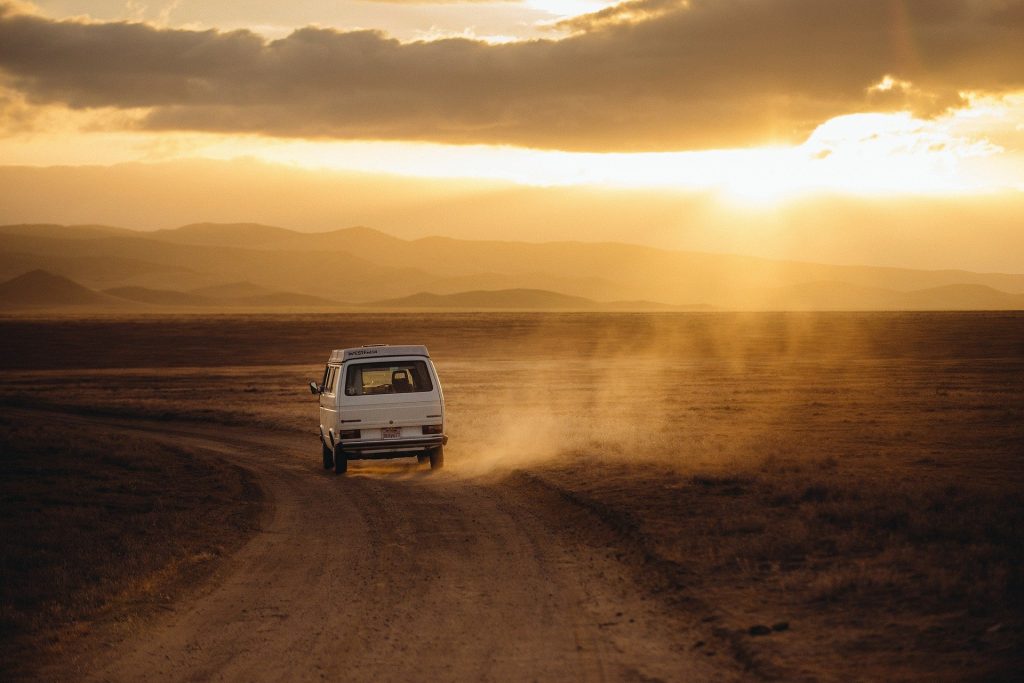With summer arriving, many travel lovers are eagerly planning how and where to spend their vacation time. For many people, a summer is not complete without at least one adventurous road trip. There is something about hitting the open road and singing along to a beloved playlist that creates a liberating, carefree feeling. In order to keep a road trip carefree, however, it is important to take certain precautions to ensure that preventable obstacles don’t put the brakes on the good time.
If you’re excited to plan your own summer road trip, here are a few pieces of advice that can help ensure that your trek goes smooth and easy:
1. Make Sure Your Vehicle Is Up to Date on Maintenance
Nothing interrupts the flow of a fun adventure on the road like experiencing car trouble. One way to prevent this is to make sure that your vehicle is up to date on all major maintenance checkpoints, such as oil and fluid levels; brake and engine condition; and tire pressure. If you have limited mechanical knowledge, getting it inspected by a professional can give you peace of mind that your vehicle is ready to handle a lengthy adventure, or if there are any underlying concerns, you can address the issues before they have a chance to hinder your journey.
2. Plan Your Travel Route and Check Availability Ahead of Time
The idea of hitting the open road without any idea which direction you’ll go or where you’ll end up is certainly appealing if you crave adventure and spontaneity, but it also increases the likelihood of setbacks and frustrations. While it’s good to allow for flexibility and fun detours in your scheduling, planning your travel route in advance can ensure that you have the best possible experience. Knowing of road closures, road work, or inclement weather ahead of time can help you choose the most efficient route. Similarly, some narrow roads and shorter tunnels cannot accommodate larger vehicles, and knowing of these size limitations can prevent major stress, especially if you plan on driving an RV or towing a trailer.
Additionally, checking for hotel or campsite availability in advance can ensure that you will have a place to settle in when you arrive at your destination. Even for small, rural locations, seasonal events, such as fairs or conventions, can lead to limited vacancies in areas that would normally have plenty of openings, which is why it is helpful to make a reservation if possible. Some national parks have started requiring reservations as well, which is why doing your research will make sure you end up at a location that can easily accommodate you.
3. Keep Your Gas Tank Full
If you have not experienced the stress of running out of gas on a barren highway, you most likely have heard the horror stories of those who have. At best, this scenario can serve as an inconvenience that forces you to wait for roadside assistance, but if it were to occur at nighttime during periods of low visibility or on a hot summer day in areas without cell phone service, being stranded on the side of the road could lead to situations that are more dangerous than a temporary nuisance.
By keeping an eye on your gas tank and staying informed on where gas stations can be found along your intended travel route, you can easily ensure that you have enough fuel to keep your journey on track. Apps like GasBuddy highlight gas stations that you can find along your way and their corresponding prices to help you find the closest and most cost-efficient deals. Even if you think that you have enough fuel to get you through a desolate stretch of road, it is always a good idea to top off your tank if you see an opportunity to do so. Driving up steep inclines and against heavy winds can cause fuel to deplete more quickly than usual, so it is a good idea to try and keep your gas tank at least half-full at all times.
4. Know That Colorado Learners Permits May Not be Valid in Other States
A road trip can be a great opportunity for teen drivers to get some meaningful experience behind the wheel. If a family is going to be on the road for hours on end, it makes sense to use the time as a way to build a student driver’s skill level, introduce him/her to the variables of different types of terrain, and stay on top of logging the required 50 hours of driving practice required by the Colorado DMV.
However, not every state honors out-of-state learners permits. Some states fully honor permits from out of state, others will recognize them as valid if certain restrictions are met (such as if the student driver meets the state’s minimum age requirement for holding a permit), and a few do not honor them at all. Before making an unintentionally illegal mistake, it is important to check with the DMV of each state that you will be passing through before handing the steering wheel over to your teen driver.
5. Avoid Drowsy Driving
While it can be tempting to push yourself just a bit longer in order to reach your destination, it is important to recognize when you have hit your limits and are too fatigued to safely drive. Alertness is a key part of safe driving, but driving while drowsy can negatively impact your cognitive abilities and slow your reaction times.
When planning your trip, try to estimate in advance how many hours you can drive without feeling tired, and arrange a place to stay overnight before you exceed that amount of time. If you unexpectedly feel fatigued while driving and do not have a passenger who can safely take over, pull over at a location where it is safe to take a short nap, such as a rest stop or a Walmart that allows vehicles to stay overnight.
Signs of drowsy driving include:
- Dry eyes and fuzzy vision
- Difficulty keeping your eyes open
- Repeated yawning
- Drifting onto the shoulder or into another lane
- Feeling restless
- Missing important turns or exits
- Trouble keeping your mind focused
- Excessive daydreaming
6. Keep an Emergency Kit in Your Vehicle
It’s always a good idea to have an emergency kit in your vehicle at all times, but this is especially the case if you will be driving long distances or through areas with unreliable cell phone service. Helpful items to include are:
- Flares or reflective triangles/vests
- Non-perishable food and water (Water is always important, but when you factor in the summer heat, it’s a good idea to bring more than usual.)
- Space blankets
- Sun hat
- Sunscreen
- Bug spray
- Tool kit
- First-aid kit
- Flashlight and extra batteries
- Extra phone chargers
- Car jack and jumper cables
- Spare tire/tire repair kit
- Hand sanitizer/baby wipes
- Extra medication (if any are needed by passengers)
- Satellite messenger
- Hard copy of a map
Closing Thoughts
When getting ready for a summer road trip, taking the time to adequately prepare for the journey ahead can help ensure that your adventure is full of memorable sight-seeing rather than stressful setbacks. Preventive measures minimize the likelihood of experiencing any obstacles along your trip, but they also help make sure that you are ready to safely handle something if the unexpected nature of the road throws you any curveballs. Happy trails!
DriveSafe Driving Schools Can Help You Build Both Fundamental and Advanced Driving Skills!
Whether you’re looking to enroll in a traditional Colorado drivers ed course in order to pass your drivers license test, or you are hoping to learn advanced defensive driving skills to better prepare you for more adventurous terrain, we can help!
We offer a variety of in-person and online services that are flexible and diverse enough to fulfill various goals, budgets, and schedules. DriveSafe has helped thousands of students become safe, competent motorists, and we are proud to offer drivers ed options that focus on both quality and convenience.
Enroll in one of our courses today, or get in touch with one of our friendly customer service representatives. We look forward to hearing how we can help you!












